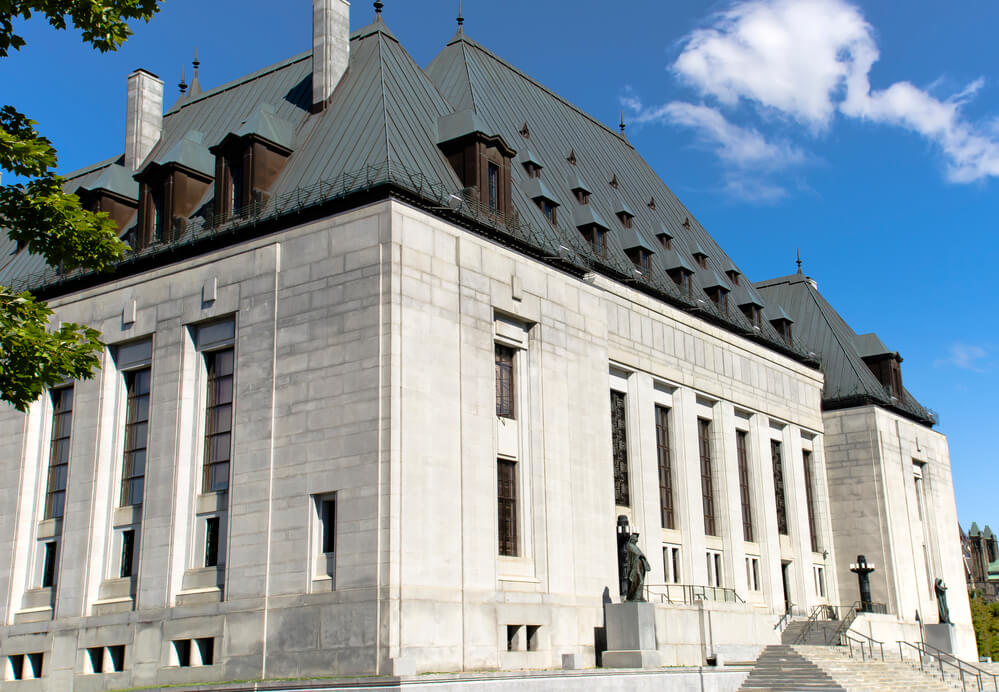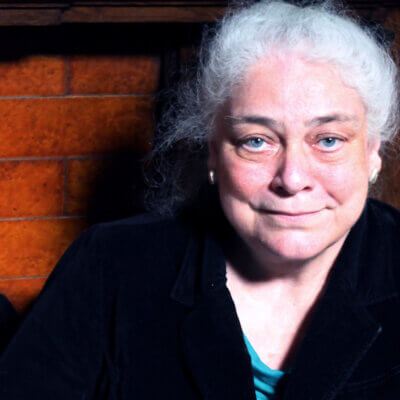The Safe Third Country Agreement (STCA) between Canada and the United States challenge will be heard by the Supreme Court on October 6. Will the equality rights of women and gender diverse refugees be considered this time around or will they be sidelined once again?
Canadian Council for Refugees et al. will challenge the STCA which stipulates that refugee claimants arriving in Canada by way of the U.S. are ineligible for refugee protection in Canada. Right now, Canada must return the refugees to the U.S. to have their claims decided under American law. For large numbers of women refugees, this is a problem.
Unlike in Canada, it’s nearly impossible to claim gender-based violence as a basis for refugee status in America.
In this challenge, the claimants include ABC and her two young daughters, who fled from gender-based gang violence in El Salvador. ABC and her children were unlikely to receive protection in the U.S. — that is why they came to Canada. The STCA means that women like ABC risk being returned to the U.S. where they face being sent back to violence in their countries of origin.
Importantly, ABC claims that the STCA has a disproportionately negative impact on women, violating their constitutional right of equality.
However, after two judicial hearings and decisions, ABC’s gender equality arguments have been left unconsidered. Instead, the judgments engaged solely with other aspects of the challenge, the rights to liberty and security of the person under section 7 of the Charter. This continues a disturbing pattern.
Equality arguments in complex, multi-issue challenges are often sidelined. Section 15 has become the wallflower of constitutional argument. When another right can ground the argument, section 15, and the aspects of dignity and fairness that equality rights alone speak to, are overlooked.
The impact of sidelining the equality argument in this case is potentially life-threatening for refugee women, gender diverse people and their children. Our equality guarantee protects against disadvantage and marginalization in a way no other right in the Charter does.
The rule of law demands that courts engage with all threats to constitutional rights. It is the judges’ job to rise to the challenge of constitutional complexity.
As a group of constitutional scholars, we believe the Supreme Court has a chance to right this pattern of avoidance in the STCA challenge. A coalition of expert groups is asking the Court to do precisely this.
The David Asper Centre for Constitutional Rights, West Coast LEAF and Women’s Legal Education and Action Fund together will argue that failure to take up the equality concerns in this case communicates the problematic message that all refugee claimants are the same.
We know this is not true. The consequences of a return to the U.S. are deeply more dangerous for women and 2SLGBTQQIA survivors fleeing gender-based violence.
Section 15 of the Canadian Charter of Rights and Freedoms guarantees the right to equality. Equality sometimes may demand identical treatment but, typically, it requires recognition of the complex guises of inequality and the need for differential treatment.
This notion of equality is known as substantive equality. It is the standard that was adopted by the Supreme Court in its very first equality decision, Andrews, and our courts have committed to uphold it when deciding whether government action violates our equality rights.
Those most in need of equality are those who bring the toughest cases — cases that challenge judges to properly apply an equality analysis. The opportunity such cases present to refine the law and to advance justice is essential.
We have such a case at hand.
To fail to consider the distinctive effect of the STCA on marginalized groups is to adopt an approach rejected decades ago. The Court knows better — and this is the case to demonstrate it.
The outcome of cases counts, of course. But how an outcome is reached is also critical. The Supreme Court affirms the values and commitments of our society. Our Constitution says equality — gender equality — matters. The Court must show this too.
Photo courtesy of DepositPhotos




